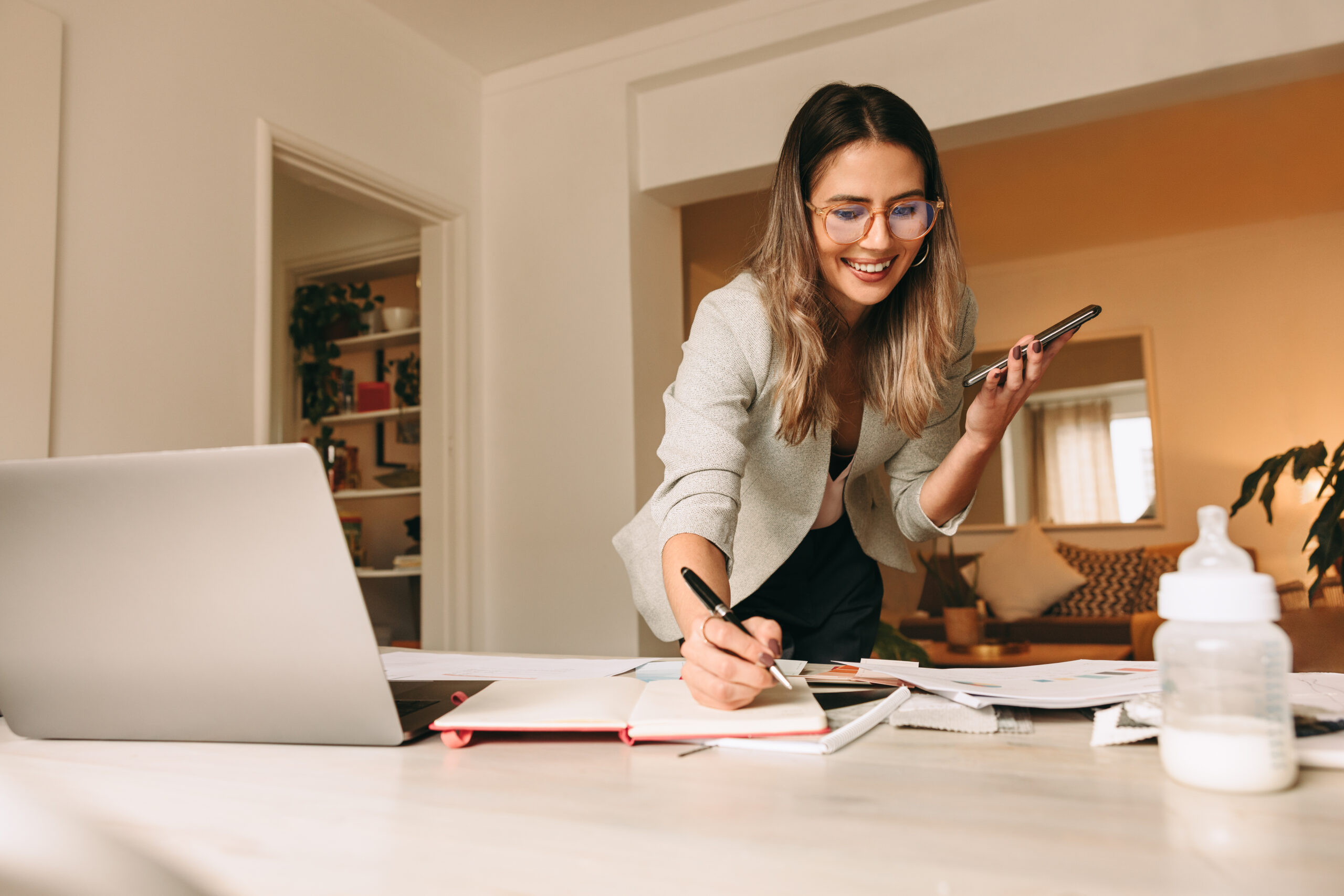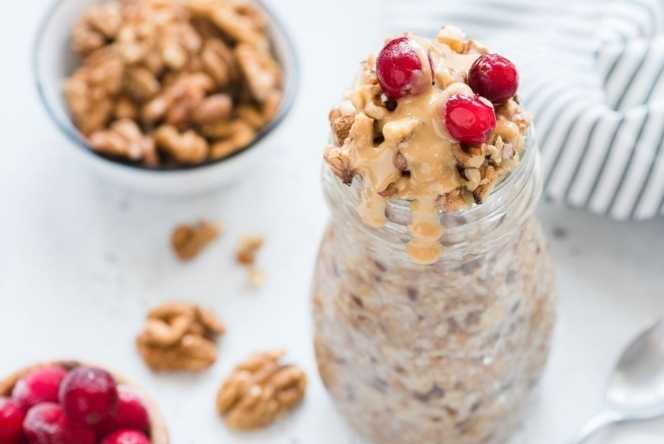You can’t be everything to everyone… But it’s easy to forget that in our fast-paced world. We’re often pulled in so many directions, it’s understandable to feel anxious and overwhelmed. Feeling that way on a regular basis, though, is harmful to our health and can lead to frequent headaches, premature aging, poor short-term memory and more. If you’re feeling stressed and easily overwhelmed, turn to these eight ways to reduce anxiety naturally.
1. Slow Your Breathing
According to Dr. Libby Weaver, there is a part of our nervous system that’s dedicated to making us feel calm and peaceful. And the way to influence it? Controlling your breath. This is because by slowing your breathing, you’re signaling to your body you’re not in danger, therefore, allowing it to relax. When you start to feel overwhelmed or stressed, take a few minutes to inhale for 10 counts, hold for 10 counts and then exhale for 10 counts. You’ll be amazed by how much more relaxed you feel.
Pro Tip: I highly recommend using Heart Math. It’s an amazing device that can significantly reduce your stress and anxiety levels and help you sleep better by regulating your heart rate variability and activating your parasympathetic nervous system. (Also known as the “rest and digest” system.) I use the Inner Balance Sensor, which replenishes energy, balances emotions and quiets an overactive mind.
2. Evaluate Your Stressors and Priorities
In today’s world, EVERYTHING can feel stressful, urgent and important. But really, not everything should be. You have to determine which aspects of your life are priorities. Doing this will allow you to say, “no,” to things in busy seasons that don’t align with your current goals. Keeping your priorities in check will also ensure you’re not letting things like work stress interfere with family time. Focusing on the pieces of life that are most important will help you reduce the anxiety you feel about having to do everything.

3. Create Positive Thoughts
“Worry is like a rocking chair. It gives you something to do, but it gets you nowhere.” — Glen Turner
Have you ever heard that quote? It’s true that lots of times, the things we stress about are often only stressful because of how we’re thinking about them. The way we think directly relates to how we feel. So for example, if you’re staring at a to-do list thinking, “I’ll never have enough time to get this done,” you may be sabotaging yourself before you even begin. If you can change what you’re thinking to focus on how you can conquer it all or at least give yourself grace if you don’t, you will reduce the anxiety you feel toward your to-dos. Becoming mindful about when you are having negative thoughts is the first step to being able to create positive thoughts.
4. Practice Meditation
Speaking of becoming more mindful, one of the best ways to do this is through meditation. Studies have also shown meditation to be effective in reducing anxiety by bringing the body back to a state of calmness and relaxation. Meditation is all about taking a few minutes each day to intentionally slow your breathing and listen to your thoughts — and getting started is easier than you may think! All you have to do is find a comfortable spot free of distractions. You can meditate either sitting or lying down, whichever works best for you. Set a timer for three to five minutes and spend that time focusing on your breathing like we talked about above. During that time, let yourself hear the conversations happening in your mind and work toward adding in more positivity.
5. Schedule Time for Rest
No matter how busy you are, you can not neglect downtime. Rest is necessary for living our best lives. Making time for self care allows you to recharge your own batteries, and it gives your body the ability to rest and repair. Without regular periods of rest, you’ll likely feel overextended and burnt out. Some of my favorite ways to relax include going on vacations, being in nature, reading, enjoying a warm bath or setting aside some quiet time in the mornings.
Pro Tip: Lavender oil is great for relaxing the mind. I love adding a few drops to an Epsom salt detox bath.
6. Limit Your Caffeine and Alcohol Intake
The problem with caffeine and alcohol is they increase common symptoms of anxiety-like moodiness and the jitters. (Too much can also trigger insomnia which can lead to more anxiety.) While alcohol may help you fall asleep faster, it is taxing on your liver and disrupts your REM sleep. Dr. Josh Axe recommends limiting yourself to one to three alcoholic drinks per week and one cup of coffee per day. Those who are especially prone to anxiety should consider cutting both out altogether.
Pro Tip: In the morning, try drinking hot water with lemon juice. If you love the taste of coffee, try drinking dandelion tea in the afternoon instead. It’s naturally decaffeinated, similar in flavor to coffee and it aids your digestion and liver. If you still feel like you need a little caffeine, try switching to green tea instead, which has lower caffeine levels and is rich in antioxidants.
7. Add Calming Supplements to Your Routine
A few of my favorite supplements include Ashwagandha, Kava Root and L-Theanine. Along with having many other health benefits, ashwagandha stabilizes the body’s response to stress and improves focus. Kava root has the power to help improve mood and ease anxiety in a non-addictive way. L-Theanine is an amino acid found in green tea known for treating anxiety, boosting neurotransmitters such as GABA and it can help quiet the mind. (I’ve also personally found CBD to be really helpful for me as well.)
** Disclaimer: This is for educational purposes only. Always seek the advice of your physician, pharmacist, or other qualified health care provider with any questions you may have regarding a medical condition or treatment and before undertaking a new health care regimen or taking any new supplements. **
8. Practice the Emotional Freedom Technique
Think of the Emotional Freedom Technique (EFT) as acupuncture without the needles. This technique uses the fingertips to restore energy flow in the body by tapping specific acupuncture points. The goal of EFT is to allow one to verbalize negative emotional experiences and release feelings of anxiety, depression and pain while the “acupressure” occurs. You can learn more about how to practice EFT by searching for demonstrations on YouTube.
Learn more about the importance of self-care in this blog post.
About Me

I’m so glad you’re here! If we’ve not yet met, my name is April Likins and I’m a board-certified health coach trained at Duke Integrative Medicine and the Institute for Integrative Nutrition.
I’m fiercely passionate about helping busy women create sustainable long-term changes with their health so they can live happier lives, experience more energy and joy, and feel their best inside and out!
Want to Work Together On Your Health and Wellness Goals?
I love helping women create sustainable long-term changes with their health so they can feel their best inside and out. Together we’ll optimize your health utilizing a whole-body approach, working on things like eating more clean whole foods, reducing your inflammation, and lowering your stress so you can thrive and achieve your full potential.
To get started, fill out this form to schedule a complimentary 30-minute health coaching consultation with me.
Free Resources You’ll Love:














